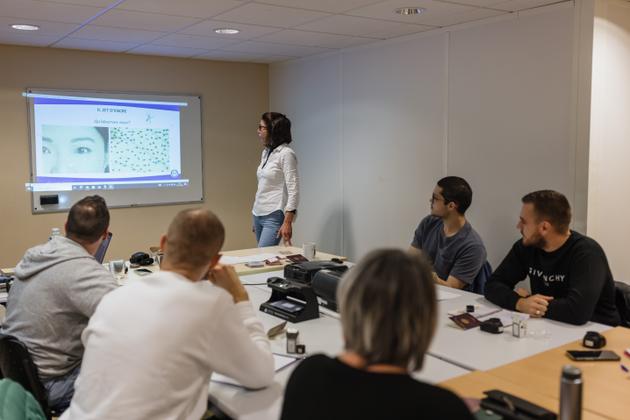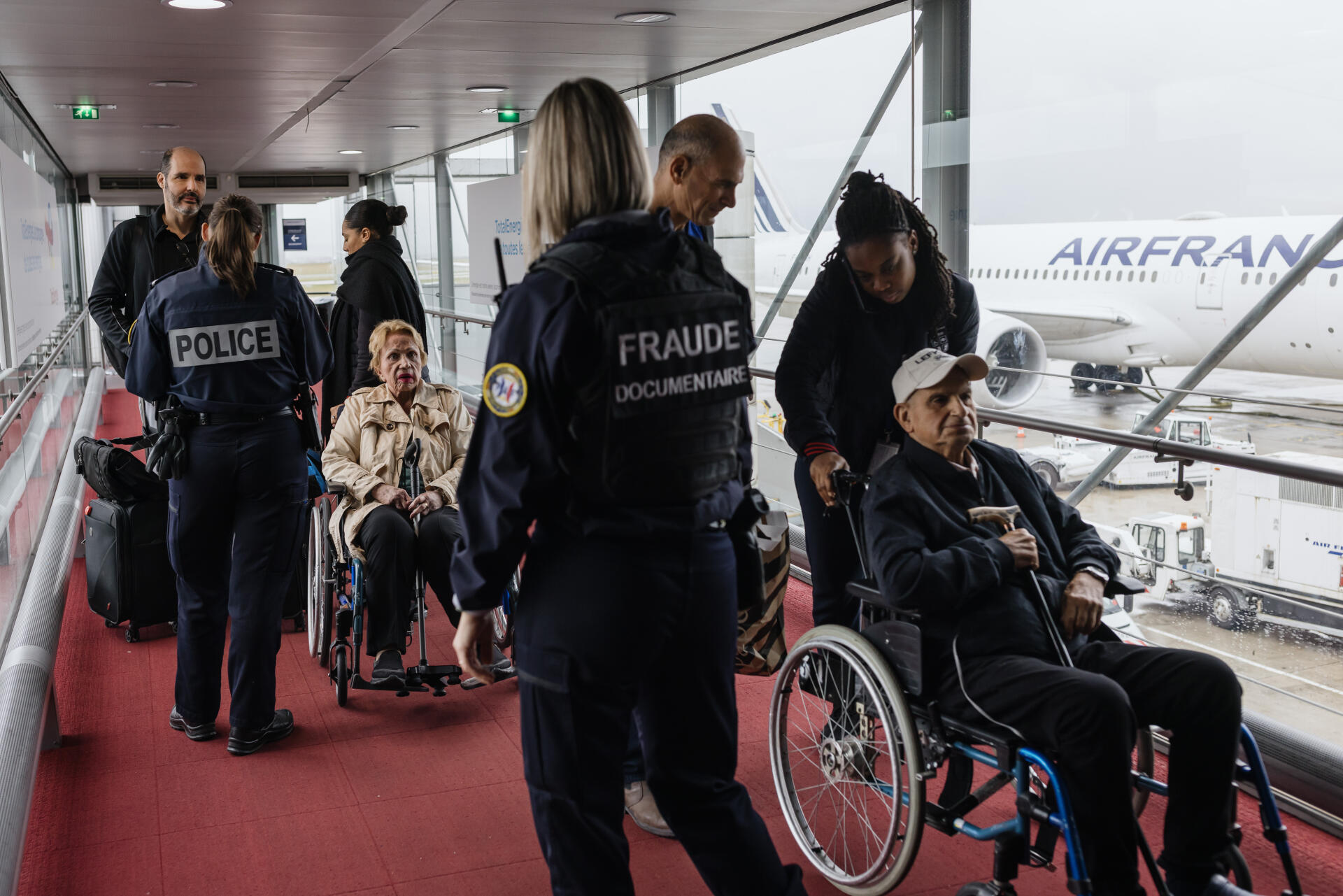

With the Paris airport border police: 'The risk, for us, is that we won't be able to send them back'

With the Paris airport border police: 'The risk, for us, is that we won't be able to send them back'
FeatureAt Charles de Gaulle Airport, Le Monde followed the border police officers tracking down the strategies used to sneak into the Schengen area without authorization.
Bits of a conversation emerged from an office. Inside, a Sri Lankan national was being questioned. He had been stopped by the border police the day before at Roissy-Charles-de-Gaulle (CDG) airport, near Paris. He had to explain himself in police custody, in the force's outdated premises located in an old concrete building near terminal 1. The man was suspected of being involved in an illegal immigration network. "We had been conducting a preliminary investigation for two and a half months," reported the officer in charge of the border police's judicial units at Roissy-CDG, who wished to remain anonymous. "We believe that at least 55 people passed via this network from Sri Lanka, for an average price of €15,000."

Who are these people? They are mostly men of modest means, often farmers, with no qualifications. "They want to escape their daily lives back home, and are willing to take any job in Europe," said the officer. To bring them into the Schengen area, the network employs a technique known as "swapping." A Sri Lankan travels to an airport in Qatar or Abu Dhabi and stays in the international zone, where they meet a "swapper," a Sri Lankan intermediary from Europe, who gives them a return ticket to Paris and a false travel ID.
"The investigation began when we found five illegal immigrants exiting a plane at Roissy. Two hours later, people arrived on other flights using the same identity. The same person arriving on two separate flights, that's impossible!" recounted the officer, whose units dismantled some 10 illegal immigration networks in 2023.

They conduct their investigations at Roissy-CDG, Europe's second busiest airport in terms of passenger numbers, and the first point of entry into the Schengen area. In 2023, almost 70 million travelers passed through this hub, which is home to France's largest police force: 1,800 officers, including 800 border police. The challenge consists in ensuring border security without disrupting the commercial flow of a site that generates 1.5% of the country's GDP (the aggregate of direct and indirect jobs and activities in transport, logistics and tourism). "We're one of the few police forces to be so closely involved with the economic aspect," said Julien Gentile, director of Roissy's border force. "Fluidity is the foundation for [Paris airports] and the airlines that offer one-hour connections."
'Why are you traveling to France?'
A third-country national should be able to cross the border in 45 minutes, and a Schengen area national in half an hour. How can one detect would-be illegal immigrants in such a short space of time? Thanks to queue management software installed on his tablet, Régis Orsoni, head of the cross-border control division, can track thousands of travelers as they pass in front of the border force booths. This allows him to measure waiting times and deploy additional teams to prevent controls from unduly slowing down passenger flow.
You have 75% of this article left to read. The rest is for subscribers only.
